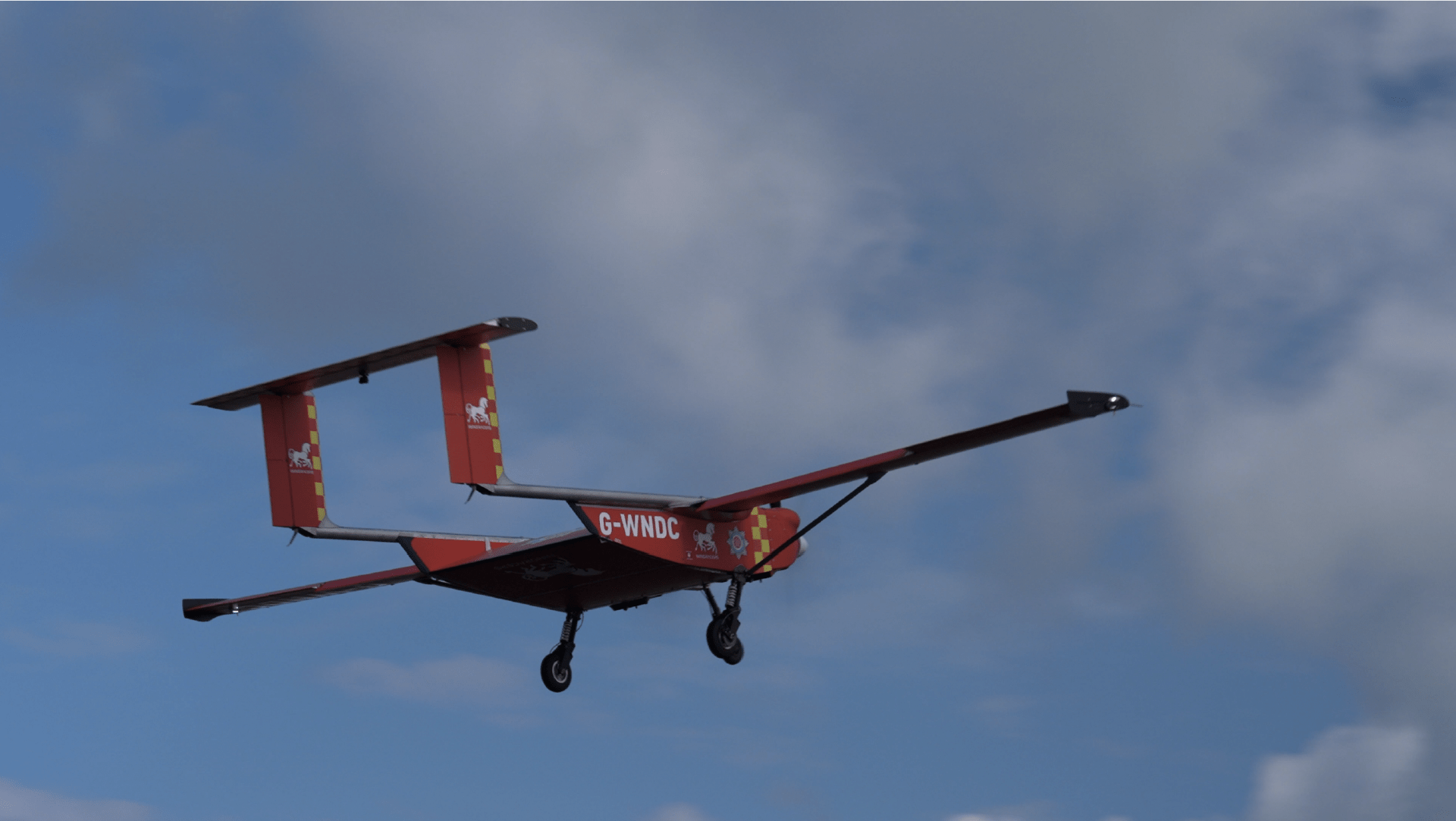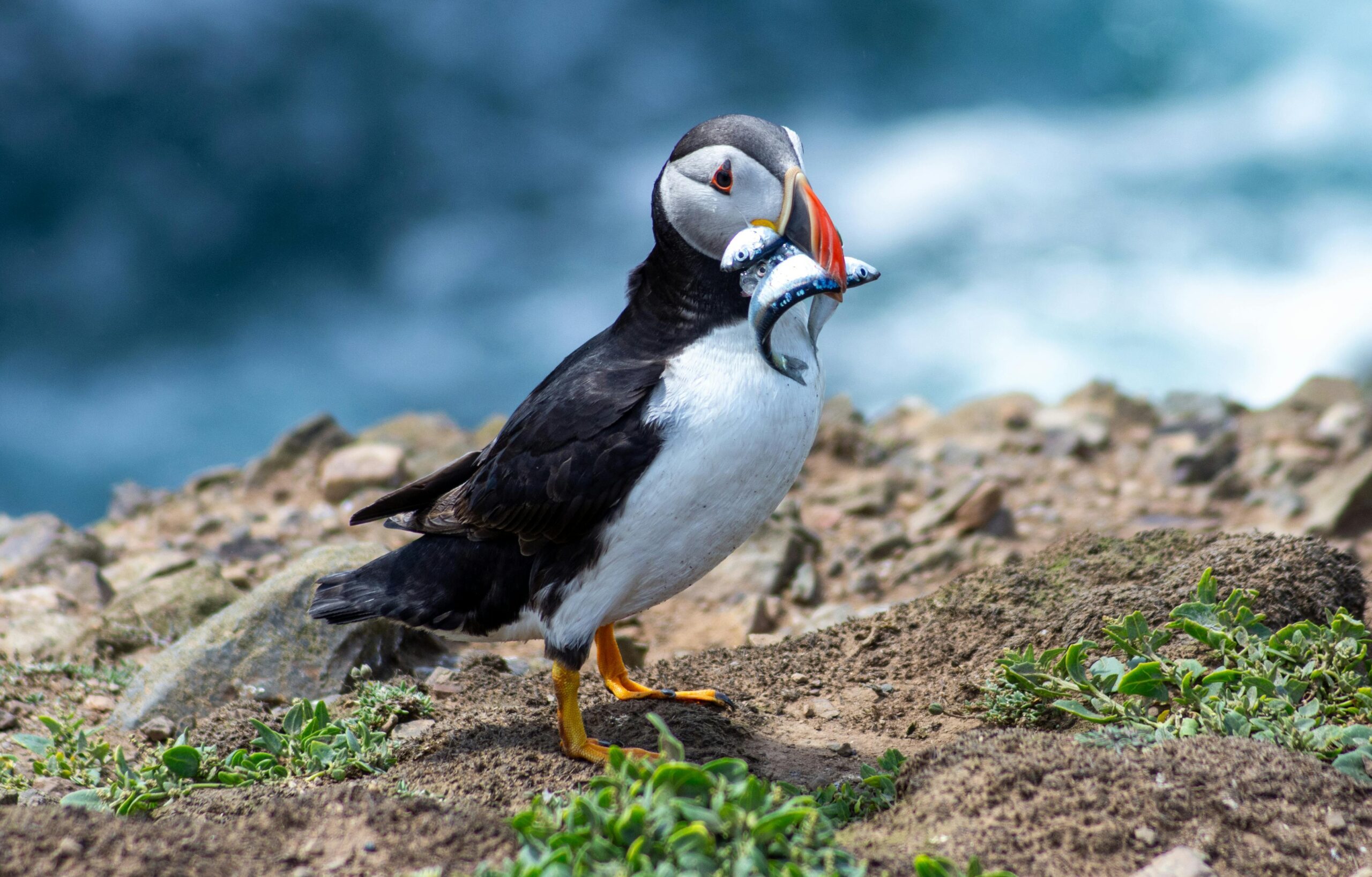Study Shows No Impact of Drone Flights on Scottish Seabird Colonies
A new study by ornithologist Dr. Roy Armstrong and ecologist Caitlin Henderson has found no evidence of disturbance among seabird colonies in Orkney as a result of recent drone flights conducted by Windracers. This discovery is important for drone operators planning to serve Scotland’s remote island communities, where many sensitive bird species are located.
The seabird colony disturbance study was commissioned as part of Windracers’ drone delivery trial in Orkney. The trial featured the Windracers ULTRA, a twin-engine, fixed-wing aircraft with a 10-meter wingspan, flying autonomously between the islands of Eday, Westray, and North Ronaldsay several times each week.


Monitoring Seabird Colonies


Dr. Armstrong and Henderson observed seabird colonies on the uninhabited Calf of Eday, which hosts 32 species of breeding birds. This area is recognized as a Special Protection Area (SPA) due to its importance as a nesting site. The researchers focused on species such as cormorants, fulmars, guillemots, razorbills, kittiwakes, and various gulls.
According to the study, no species displayed any adverse reactions to the drone flights, either visually or auditorily. Some common gulls were attracted to the taxiing drone, a behavior commonly seen when these birds follow agricultural machinery. Other disturbances observed were caused by a passing sheep, passers-by, and a boat.
Dr. Armstrong explained that the study’s findings align with previous research on drone and bird interactions. “The trials clearly demonstrated that there was no disturbance effect observed at the chick rearing stage of a wide range of species,” he said. He also emphasized that low noise levels from the Windracers ULTRA made it unlikely to cause adverse effects on bird colonies.
Supporting Drone Delivery and Wildlife Conservation
Windracers, as part of their ULTRA drone development, is committed to understanding the potential environmental impacts of their operations. “The findings of this study will no doubt be of reassurance to Orkney residents as well as the birdwatching community around the world,” said Rob Datson, Chief Operations Officer at Windracers.
The cargo delivery trial using Windracers ULTRA is part of the Sustainable Aviation Test Environment (SATE) program. This program aims to demonstrate the feasibility of using drones for transporting goods to remote locations, like the Highlands and Islands of Scotland, in a cost-effective and sustainable manner. SATE is part-funded by the UK Research and Innovation (UKRI) Future Flight Challenge, which supports advancements in autonomous aviation.
Future Implications for UK Drone Operations
The Civil Aviation Authority (CAA) recently selected SATE as one of six projects to test the safe integration of drones flying beyond visual line of sight (BVLOS) into UK airspace. Highland and Islands Airports Ltd (HIAL) will lead the project in collaboration with Windracers, continuing efforts to ensure drone operations are safe for wildlife and the environment.
With a payload capacity of 100 kg and a range of up to 1,000 km, the Windracers ULTRA is designed for reliable middle-mile logistics. The aircraft’s dual and triple-redundant systems ensure that it can operate safely without a remote pilot.
This study supports the use of drones in remote regions while maintaining protection for sensitive wildlife, offering a path forward for sustainable, eco-friendly drone operations.
Read more:
Miriam McNabb is the Editor-in-Chief of DRONELIFE and CEO of JobForDrones, a professional drone services marketplace, and a fascinated observer of the emerging drone industry and the regulatory environment for drones. Miriam has penned over 3,000 articles focused on the commercial drone space and is an international speaker and recognized figure in the industry. Miriam has a degree from the University of Chicago and over 20 years of experience in high tech sales and marketing for new technologies.
For drone industry consulting or writing, Email Miriam.
TWITTER:@spaldingbarker
Subscribe to DroneLife here.


